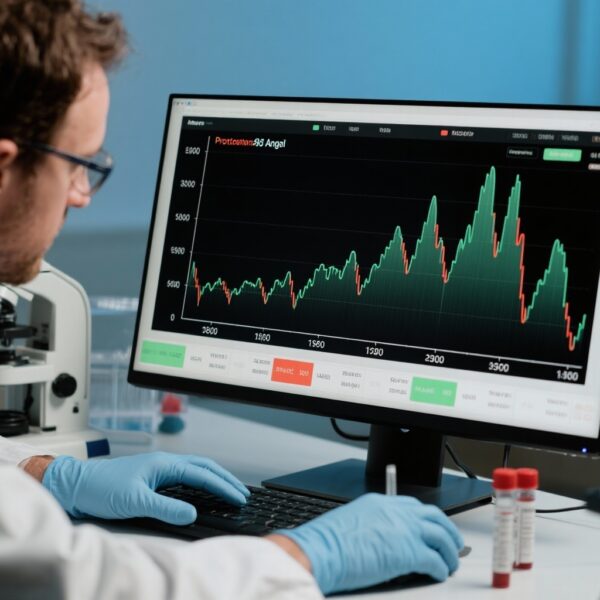Highlight
This secondary analysis of the ASPREE randomized clinical trial identifies heterogeneous effects of low-dose aspirin (LDA) for cancer prevention among older adults. It pinpoints clonal hematopoiesis of indeterminate potential (CHIP) as the strongest individual predictor of aspirin benefit. Personalized treatment prediction models enabled improved 5-year absolute cancer risk reduction versus a universal aspirin approach.
Study Background and Disease Burden
Older adults face a disproportionately high incidence of cancer, contributing significantly to morbidity and mortality worldwide. Aspirin, a widely available and inexpensive agent, has demonstrated some cancer-preventive effects in younger populations, particularly against colorectal cancer. However, the role of low-dose aspirin (LDA) for primary cancer prevention in the elderly remains unclear due to mixed evidence and concerns about bleeding risk. Identifying which older individuals are likely to derive benefit or suffer harm from aspirin is therefore vital for implementing precision preventive approaches in this age group.
Study Design
This comparative effectiveness study is a nonprespecified secondary analysis nested within the Aspirin in Reducing Events in the Elderly (ASPREE) randomized clinical trial. ASPREE enrolled 19,114 community-dwelling individuals aged ≥70 years from Australia and the United States between 2010 and 2014. This analysis focused on 9,350 Australian participants who provided biospecimen samples for clonal hematopoiesis of indeterminate potential (CHIP) testing. CHIP status was established using a targeted sequencing assay assessing mutations in 18 genes linked to hematopoietic clones.
Participants were randomized to receive either low-dose aspirin (100 mg daily) or placebo. The primary outcome was overall cancer incidence at 5 years. Twelve candidate predictive models were developed to estimate individualized treatment effects (ITEs) of aspirin on cancer risk based on demographic, clinical, and genomic factors, including CHIP status. The final model was selected through internal validation using bootstrapping techniques and applied to stratify participants into treatment-favorable (ITE >0) and treatment-unfavorable (ITE <0) subgroups.
Key Findings
The analysis included 9,350 participants (median age 73.7 years, 53.7% female), evenly randomized to aspirin (4,667) or placebo (4,683), with median follow-up of 4.5 years. Factors associated with greater aspirin benefit for cancer prevention included older age, nonsmoking status, the presence of CHIP with variant allele frequency ≥10%, family history of cancer, and lower body mass index. Among these, CHIP emerged as the strongest predictor of favorable response.
Participants identified as treatment-favorable by the predictive model experienced a 15% relative reduction in cancer incidence with aspirin (hazard ratio [HR] 0.85, 95% confidence interval [CI] 0.72-1.00), whereas those in the treatment-unfavorable subgroup exhibited a nonsignificant increase in cancer risk (HR 1.14, 95% CI 0.95-1.38), demonstrating significant heterogeneity (P = .02 for interaction).
Personalized allocation of low-dose aspirin based on the model improved the median 5-year absolute cancer risk reduction by 2.3% (interquartile range, 0.7%-3.7%) compared to a treat-all strategy. This finding highlights the potential of genomic and clinical data integration to guide aspirin use and maximize its preventive benefit while avoiding harm in vulnerable subgroups.
Safety outcomes consistent with prior ASPREE reports reaffirm the importance of individual risk assessment given potential bleeding risks associated with aspirin, especially in an older cohort.
Expert Commentary
The ASPREE trial secondary analysis represents a significant advance toward precision prevention in geriatric oncology, providing a clinically actionable model to tailor aspirin use. The identification of CHIP as a central predictive biomarker is of high interest; CHIP reflects the expansion of hematopoietic clones with somatic mutations and has been linked to inflammation, cardiovascular disease, and now differential aspirin response in cancer.
While aspirin’s chemopreventive mechanisms involve inhibition of platelet activation and cyclooxygenase pathways, the interaction with CHIP-associated inflammatory and proliferative signals could underlie the heterogeneity observed. This biological plausibility strengthens the rationale for incorporating clonal hematopoiesis data in preventive decision-making.
Limitations include the post-hoc nature of the analysis, restriction to Australian participants with biosamples, and relatively modest absolute effect sizes. Longer follow-up may better characterize aspirin effects on specific cancer types and survival outcomes. Safety remains a concern, emphasizing that aspirin prevention must balance benefits against bleeding risks, especially in older adults with comorbidities.
Conclusion
This analysis from the ASPREE randomized clinical trial elucidates substantial heterogeneity in low-dose aspirin’s cancer preventive effect among older adults. It identifies CHIP as a key biomarker enabling personalized aspirin use, which improves cancer risk reduction compared with a uniform treatment approach. These findings support integrated genomic and clinical models to guide individualized prevention strategies in aging populations.
Further prospective validation and mechanistic studies are warranted to optimize aspirin use in clinical practice, ensuring maximum benefit while minimizing harm. The study highlights the evolving paradigm of precision cancer prevention in geriatrics, leveraging molecular insights to enhance therapeutic decision-making.
References
- Thao LTP, Nguyen TL, Singh J, et al. Low-Dose Aspirin for Individualized Cancer Prevention in Older Adults: A Secondary Analysis of the ASPREE Randomized Clinical Trial. JAMA Oncol. 2025 Sep 25. doi:10.1001/jamaoncol.2025.3593. Epub ahead of print. PMID: 40996732.
- Curtis DJ, McNeil JJ, Woods RL, et al. Effect of Aspirin on Disability-Free Survival in the Healthy Elderly. N Engl J Med. 2018;379(16):1499-1508. doi:10.1056/NEJMoa1800722.
- Steensma DP, Bejar R. Clonal hematopoiesis and its potential adverse consequences in aging and cancer. Blood. 2019;133(10):878-885. doi:10.1182/blood-2018-12-879550.
- Rothwell PM, Fowkes FG, Belch JF, et al. Effect of daily aspirin on long-term risk of death due to cancer: analysis of individual patient data from randomised trials. Lancet. 2011;377(9759):31-41. doi:10.1016/S0140-6736(10)62110-1.


